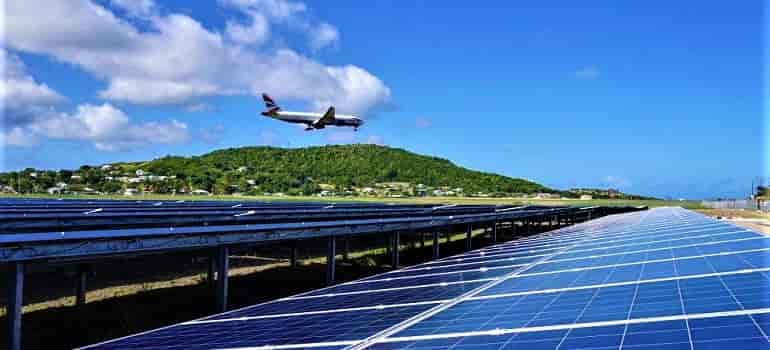
Aviation industry leaders have reiterated that long-term climate action should be a priority alongside economic recovery in the coming years.
Michael Gill, Executive Director of the cross-industry Air Transport Action Group, said air transport is in the midst of the deepest shock in its history.
“We expect a reduction of up to 4.8 million jobs in the sector by the end of the year and a massive hit to our ability to connect the world. However, as we plan for the recovery of air connectivity, we also must prioritise our environmental progress,” he said while speaking at the recent Global Sustainable Aviation Forum.
“Our sector has a long-term climate change goal to cut CO2 emissions in half by 2050. With the right help from governments, the energy sector and technologists, we expect that global aviation will be able to hit net zero emissions a decade or so later,” he added.
Simon Hocquard, Director General of Civil Air Navigation Services Organisation, said meeting the ambitious sustainability goals continues to be of paramount importance and will only happen if everyone in the aviation system plays their part.
“From implementing new operational procedures to adopting the latest technologies, the air traffic management industry has an important role to play in improving the efficiency of aviation in the near term, before new electric aircraft technologies or zero-carbon fuels come on stream,” he said.
Alexandre de Juniac, Director General and CEO of the International Air Transport Association, said the aviation industry is working hard to re-connect the world safely and sustainably.
“We are committed to pushing ourselves, our partners and governments to achieve our carbon targets in a green recovery. But this is not the time for more environmental taxes that punish people for reconnecting with family or who contribute to economic recovery with business travel,” he said.
For aviation, said de Juniac, the keys to combatting climate change remain investments in carbon offsetting, sustainable fuels and radical green technologies.
Eric Fanning, Chair of the International Coordinating Council of Aerospace Industries Associations, said manufacturers invest billions of dollars a year to make the next generation of airplanes even more fuel-efficient, but disruption from COVID-19 will make it difficult to maintain this level of investment in research and development.
“Moving forward, government and industry leaders must find new ways to collaborate on funding and developing innovative technologies that will address climate change,” he said.
Luis Felipe de Oliveira, Director General of Airports Council International, said the recovery of aviation industry will be a key driver of the global economic recovery.
“To ensure that aviation can continue to provide the economic and social benefits, it is crucial that we pursue a green recovery and lay the foundation for a prosperous and sustainable industry for the long term,” he said.
Airports are central to the interconnected and interdependent aviation ecosystem, said de Oliveira. Airports and their partners in the aviation industry need the support of appropriate regulation and government policies to facilitate a green recovery and push for real change.
Source: ANI

